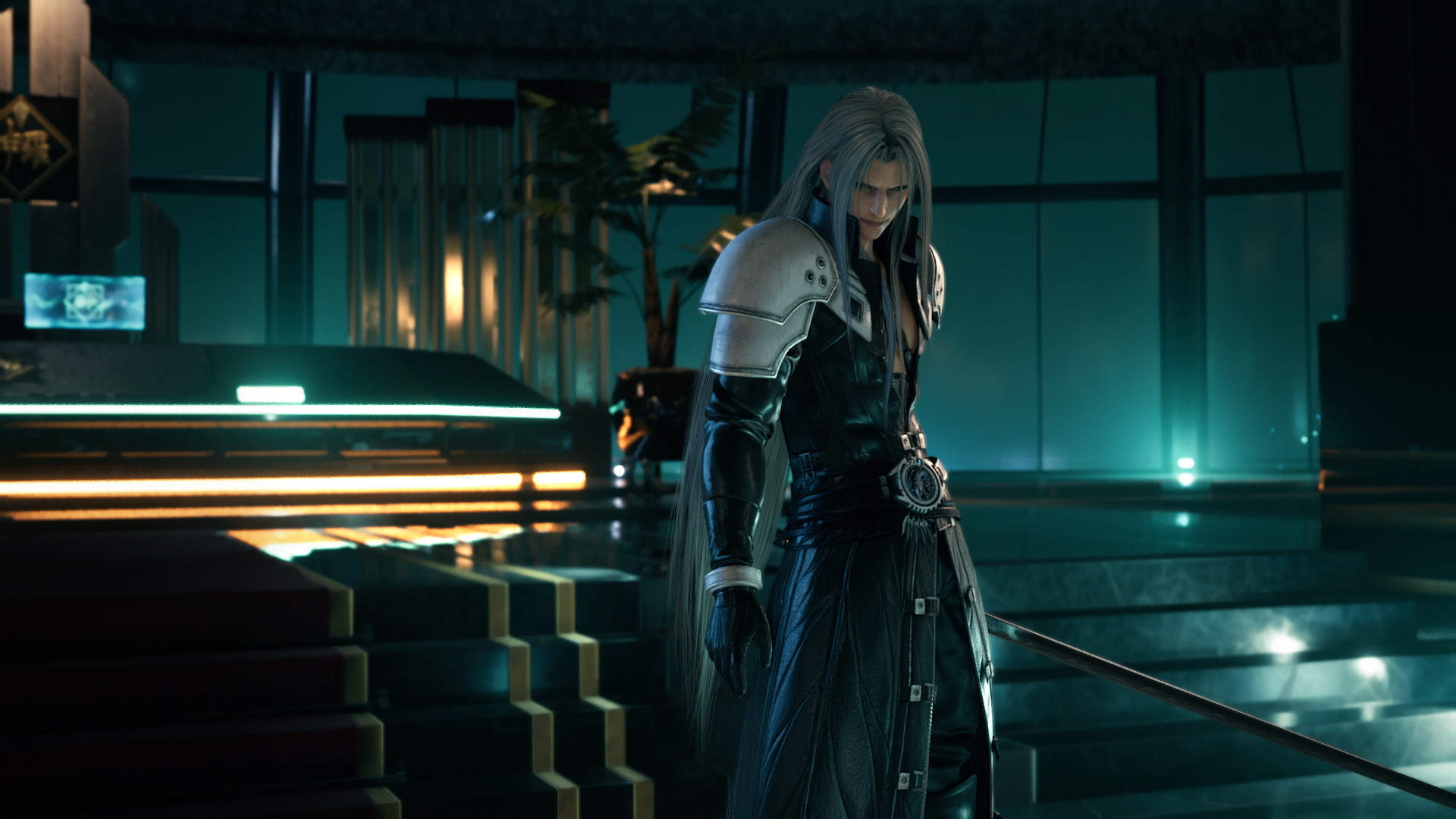In the opening of Final Fantasy VII, Cloud Strife, a mercenary and former member of an elite private military group called SOLDIER, takes on a job with an eco-terrorist cell named Avalanche. Their mission is to blow up a reactor that siphons Mako, the lifeblood of the planet, and uses it to power the sprawling industrial metropolis Midgar. The group infiltrates, braves resistance from Shinra Electric Company's forces, and sets off an explosion that renders the reactor inoperable.
In the 1997 original, what followed was a hop, skip, and jump through a few sections of the city back to Sector 7, and the safety of Avalanche's hideout. In Final Fantasy VII Remake, having carried out the mission, you're asked to walk the streets in the aftermath and witness the harrowing consequences of your actions. The sector lies in ruin, fires rage, buildings are crumbling, and the heartbreaking human cost is laid bare.
A somber violin plays as you walk Midgar's streets, with each pull of the bow across strings tugging at your conscience and stirring the heart, asking you to question whether you're doing the right thing. The cries of confused children echo, people fall to their knees attempting to grapple with the magnitude of what has happened, and citizens decry this so-called group of freedom fighters you've joined just to make a quick buck.
As far as statements of intent go, Final Fantasy VII Remake's opening Bombing Mission is a clear and powerful one. This game may be just the first chapter in the reimagining of a much bigger story, but it seeks to uncover depth that was hitherto left to the imagination. It is rich in details that were previously unexplored, realizes new storytelling ambitions with confidence, and presents fresh perspectives that feel both meaningful and essential. It achieves these goals so successfully that it's hard to think that this story existed in any other way.
Final Fantasy VII Remake's narrative and characterization achievements are facilitated by gameplay that feels modern but is crystallized around the classic's role-playing fundamentals. In many ways, its gameplay model feels like the culmination of the franchise's evolutions, with ideas from throughout the series brought together in a composite that is fresh but familiar. This is the first time that the action-focused style of modern-era Final Fantasy games doesn't feel like it comes at the expense of the methodical nature of the series' roots. The hybrid style lets you glide between characters at the touch of a button and assume direct control. At the same time, commands can be issued to characters that are otherwise acting independently, conjuring the spirit of that deliberate stand-in-place-and-fight format of old.
There's so much to marvel at; standing on a plate suspended above Midgar and staring out across the city; hearing each piano note of Tifa's theme played so softly that you can almost picture the fingers gently moving across the keys; walking across the church rooftops with Aerith as an odd calm falls over the city--it's all brought to life with such respect and attention to detail that it's hard not to be overwhelmed and give in to the nostalgia. Then there's the whole Don Corneo plan being hatched and paying off in a way that doesn't feel exclusionary or mocking, but inclusive, fun, and wholly unexpected. The remake doesn't shy away from embracing the goofier elements of the original, instead using it to bring levity to what is otherwise heavy subject matter. Even as the game reaches its conclusion and embraces the more outlandish and fantastical parts of the narrative, it does so in a way that feels earned. Again, this might be just a small chunk of the original release, but as a standalone game Final Fantasy VII Remake is complete. Although a greater villain lingers in the periphery of the story, and cryptic references to something more in Cloud's past--as well as other unexplained elements--are introduced in the concluding chapters, this doesn't diminish the story that is told. Final Fantasy VII Remake can be enjoyed on the merits of what it presents, and for those in the know, it also lays the foundation for future revelations in an intriguing way.
Regardless of your history with the original game, Final Fantasy VII Remake is an astounding achievement. The wait for its release was a long one, but in gameplay, story, characters, and music, it delivers--the wait was worth it. For first-time players, it's an opportunity to understand why Final Fantasy VII is held in such high regard. It's the chance to experience a multifaceted story that grapples with complex subject matter, be in the company of memorable characters, and be moved by their plight. For returning fans, this isn't the Final Fantasy VII your mind remembers, it's the one your heart always knew it to be.


